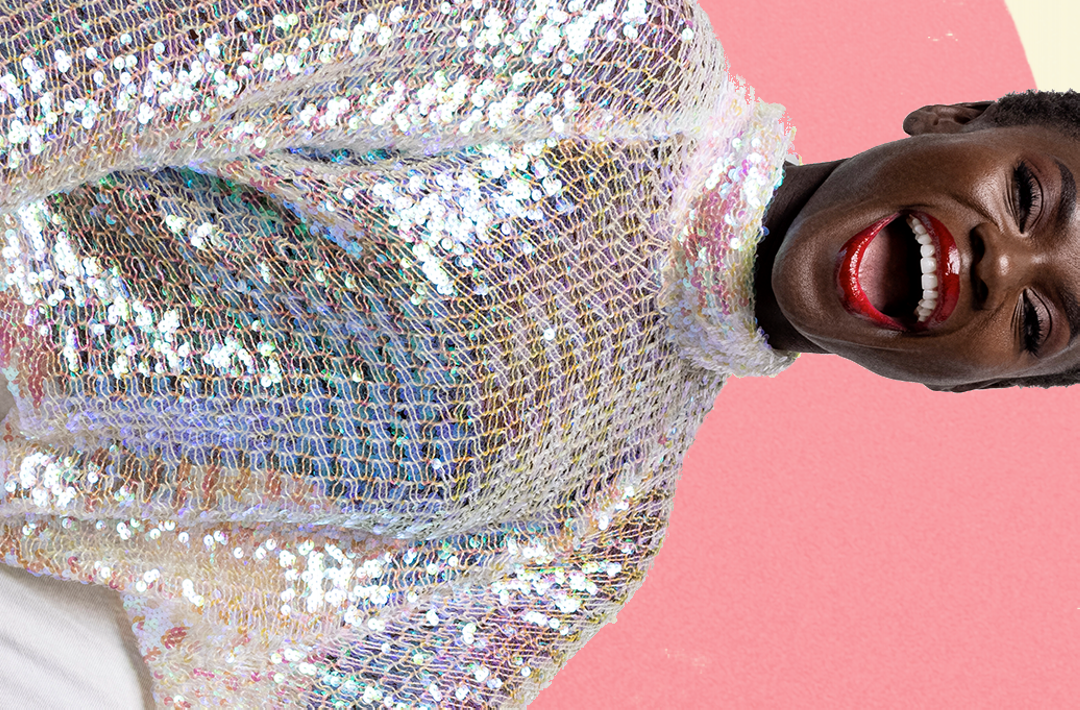

Say it with us: Psoriasis is so much more than skin deep. Research shows that psoriasis can contribute to or worsen many mental health conditions, including depression, anxiety, and bipolar disorder. Many people also report that the skin condition impacts their confidence and self-esteem. To make matters worse, stress can actually aggravate psoriasis symptoms, causing a vicious cycle that’s hard to break.
Living with a chronic condition like psoriasis can sometimes feel isolating. It’s easy to think that you’re alone in your experience, especially if you don’t have any close friends or family members who know what you’re going through. The thing is, there are so many people who are also working to manage both the physical and mental impacts of this chronic skin condition. Here, four women share how psoriasis has impacted their mental health and how that relationship has evolved throughout the years.
“I felt like I was constantly being judged.”
Juliana S., 40, Minnesota-based hairstylist
“I developed psoriasis a few months after I had my daughter. I was 29. It started in my scalp and was extremely itchy. Then it ended up showing up in other places: my hands, my neck, and on my face, specifically around my eyes.
“Now, I have it pretty well controlled, but when I was first diagnosed, it got pretty bad and I was extremely worried that I would have to end my career as a hairstylist. My hands are constantly on display as a hairstylist. And it just hurt so bad. There were times when my hands were dry and cracked to the point they were bleeding. I love my job, I’m super passionate about it. But I worried on and off for about a year and a half whether I’d have to give it up.
“There were times at work when I would wear gloves because I felt so uncomfortable with people noticing it. You notice people staring at it. There’s also just the uncomfortable uncertainty of being out in public. When there’s a bad breakout, how do you hide your hands? If I was at the grocery store and putting groceries on the checkout belt, I would do it as fast as I could and try to not show my hands. I felt embarrassed that it was on display. The itching also causes some anxiety. There’s always something on your body to scratch, which makes you feel uncomfortable in public.
“I felt like I was constantly being judged until I eventually realized people aren’t worried about me; they’re more worried about themselves and how others may be judging them. So if I was having a particularly bad flare-up, I started letting my clients know what it was. Most of the time, they would actually say that somebody in their life had it. The more you talk about it and tell people about it, the easier it gets to have that discussion.”
“I developed this perfectionist, controlling mentality.”
Cristie N., 26, L.A.-based sommelier and president of The United Sommeliers Foundation
Most Popular
- 5 Less Obvious Signs of Seasonal Depression You Should Definitely Pay Attention To
By Maggie O’Neill
- How Gross Is It to Wear New Clothes Without Washing Them First?
By Julia Ries
- Paxlovid Is Super Promising. Why Aren’t More People Getting It?
By Maggie O’Neill
I’ve had psoriasis since I was eight. Back then, I couldn’t control the way my body was breaking out, so I wanted to be really in control of everything else about my appearance. I dressed conservatively and was a master at covering up my psoriasis, but I always wore matching outfits. And I developed a very controlling personality. I had a lot of perfectionist tendencies and was very critical of things. When you’re insecure about something on your body, you become hyperaware of it on other people. I really had to work hard in therapy to get through that.
“When I was younger and had a really large breakout, I’d get really sad and depressed. There was so much good about me and my life, but it was very difficult to see past having these big blotchy patches on my skin.
“I’m a huge advocate for therapy. Being able to separate myself from my skin condition and knowing that nobody’s perfect was really big for me. I needed to learn that my skin isn’t going to be perfect and it never will be, but I could still be a leader and have a voice and be powerful. I’ve gone to therapy since I was 14 years old, when it was really bad.
“I’m on biologics now, so my psoriasis rarely flares. It’s not something I think about on a day-to-day basis anymore. But in February I had one of the worst flare-ups since I was a teenager. This time, it wasn’t as stressful for me. I was just like, ‘Okay, my skin is doing that thing again. I’ll take medicine, and it will go away. It’s fine.’ I’ve had psoriasis for 18 years now, so I’ve had time to come to terms with it and to understand that I am not defined by my skin. I know that there are so many things I can be proud of outside of the way I look.”
“I was so self-conscious of my psoriasis that I hid it from everyone.”
Jena L., 31, public relations professional in Miami
“I’ve had mental health struggles since middle school, which is when I noticed I was getting teased for my skin. I don’t think the teasing necessarily caused my mental health problems, but as a middle schooler, it definitely didn’t help.
“As I got older, I struggled specifically with my appearance and eating disorders. I was so self-conscious of my psoriasis that I hid it from everyone, including my boyfriend in college, who didn’t even notice that I had it until over two years of dating. I hid it well, and I continued to do it with anyone else I dated or got close to. I always assumed everyone knew and saw, and I felt like it was the elephant in the room.
“This probably sounds silly, but I think I finally gave up a lot of my insecurity after Instagram got big and I saw others posting about body image positivity and other cosmetic issues that we can’t control. Seeing others who seemed so beautiful and brave and accepting of themselves on social media really did help me be more secure in who I am—flaws and all. Mental health will always be something I struggle with, daily in fact, and accepting and loving myself took time. A lot of time. But I look at the marks on my skin as a reminder of who I am, and I just own it now.”
“I used to hate showering because I’d have to look at my skin.”
Damini Mistry, 26, U.K. blogger at Damini Blogs
Most Popular
- 5 Less Obvious Signs of Seasonal Depression You Should Definitely Pay Attention To
By Maggie O’Neill
- How Gross Is It to Wear New Clothes Without Washing Them First?
By Julia Ries
- Paxlovid Is Super Promising. Why Aren’t More People Getting It?
By Maggie O’Neill
“I was diagnosed with psoriasis when I was six years old. At the time, it was on my elbows, knees, and behind my ears. I then had my first severe flare-up when I was in my early teenage years. Psoriasis covered 90% of my body. This was a very confusing time for me. I was very quiet and reserved growing up, but at the time I never understood that this was because of my insecurities and low self-esteem.
“I never wore dresses as a teenager—I covered up my skin as much as I could, and I avoided going to parties and other social events. In my late teens, my psoriasis started calming down. But then, towards the end of university, I had another severe flare. My skin was covered overnight. And it drastically affected my confidence. I avoided all social activities.
“I used to hate showering because I’d have to look at my skin, and I hated looking at my reflection in the mirror. It was the first time during my psoriasis journey that psoriasis badly affected on my face. I covered up with high-neck and long-sleeve tops. I wore neck scarves. I wore my hair a certain way to cover as much of my skin as possible. I would hate making eye contact with people because it made me feel like they were looking right at my psoriasis.
“I felt like I had no one to talk to because no one really understood how badly my psoriasis was affecting my confidence and my mental health. So I started looking online for a community that I could reach out to, and I found a really welcoming psoriasis community on Instagram. I started blogging about my journey because I wanted to embrace my skin. I no longer wanted it to be something I hid; something that restricted my life. Blogging and actively getting involved with the community slowly helped me gain my confidence back.”
















